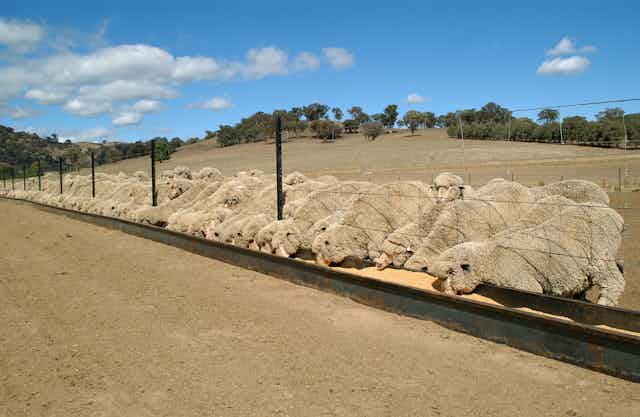A Senate committee last week effectively killed off a proposal to create an independent animal welfare authority for Australia.
Without the committee’s support, the Voice for Animals Bill introduced by the Greens has no hope of being enacted. But the Senate inquiry that preceded the report gave a valuable insight into how animal welfare issues are viewed within our political and wider culture.
The inquiry was conducted by the Rural and Regional Affairs and Transport Legislation Committee. Senators who have had direct involvement in livestock industries and/or represent states that are closely aligned with rural agricultural interests played a dominant part in the process.
This situation forms a microcosm of a wider problem with existing animal welfare regulation: that primary industries and agriculture departments administer and, in some cases, enforce animal welfare laws. They also advise governments on animal welfare, with significant input from industry.
While most animal welfare regulation is state-based, the Commonwealth adopts the same model, with the Department of Agriculture and Water Resources bearing responsibility for most national animal welfare matters, including live exports. Yet the department’s predominant role is to support and promote agricultural and other industries – the very conflict of interest that the Greens’ bill was seeking to avoid.
Cut off the ear or shoot the sheep?
Agricultural and industry interests were prominent at last month’s Senate hearing on the bill. But many questions to witnesses representing animal protection bodies lacked obvious relevance and the tone was sometimes hectoring.
Liberal senator Bill Heffernan, in the chair, set the scene by asking: “If I have a ewe down in the paddock with a cancer ear, should I cut the ear off or shoot the sheep?” Similar questions to the panel followed: would they shoot a ewe with a prolapse? Do they object to poisoning and shooting pigs that eat newborn lambs? Queries as to the questions’ relevance were met with responses such as: “Have a bit of guts and have a crack.”
Another Liberal senator, Chris Back, a former livestock veterinarian, expressed “deep disappointment” at the suggestion that vets employed by live export companies could be professionally compromised, but did not pursue other pertinent matters, such as the department’s heavily criticised approach to enforcement of the rules governing live exports.
Labor members of the committee also chose not to engage substantially with key issues. Instead, WA ALP senator Joe Bullock chose to ask representatives of animal welfare groups about their sources of funding, and to press them on whether they would shoot Heffernan’s hypothetical pig.
Paying respects
In contrast, the six senior Department of Agriculture representatives received a more respectful reception. The department’s deputy secretary was invited to sidestep the hypothetical farmyard questions, which he duly did on the basis of being a “humble economist” – a self-deprecating assessment that did not stop him offering his opinions about the relationship between industry and animal welfare.
This deferential attitude to those with industry connections was also on show at a hearing by the same Senate committee back in May, when it discussed proposed new laws to enforce reporting of animal cruelty. Although framed in terms of animal protection, this bill, introduced by Senator Back, is widely regarded as intended to protect industries from animal activism.
It is unlikely to succeed, at least in its current form, given Labor’s lack of support and the overwhelming number of submissions detailing its shortcomings.
But again the hearing showed an evident disdain for animal protection bodies, including the RSPCA, on whom state governments rely to enforce animal cruelty legislation.
Who speaks with authority?
Perhaps the most striking feature of the inquiry into the Voice for Animals Bill is its irony: an inquiry into a bill to establish an independent animal welfare office by a committee with a vested interest in industry and agriculture. More broadly, this prompts the wider question of who is entitled to speak with legitimacy and authority about animal welfare.
The logical inference from Heffernan’s questioning is that only those with farming or industry experience are qualified to make decisions about animal welfare – that only those who have been down in the paddock or worked directly with livestock industries are worth listening to.
Implicit in this view is the idea that farmers and livestock vets are beyond reproach, and that the agriculture department’s expertise is a given. These attitudes reflect a culture that accepts some animal cruelty as normal and belittles those who view it otherwise.
The creation of an independent office of animal welfare would be a good start in helping to change this culture. This does not preclude industry input, but ensures that other expertise is recognised.
In their dissenting report, the Greens noted that their Bill could be improved by incorporating some of the submissions to the inquiry. And an independent office of animal welfare is already part of Labor’s platform.
If politics could be set aside, these two parties could work together to put an independent animal welfare office at the forefront of public debate.

